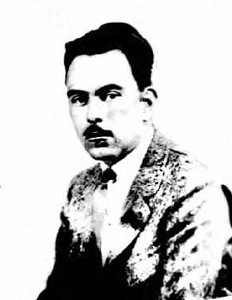Westward - With American Explorers

Author:
Walter Franklin Buehr ![]()
![]() Complete Authored Works
Complete Authored Works
Illustrator:
Walter Franklin Buehr ![]()
![]() Complete Authored Works
Complete Authored Works
Publication:
1963 by G.P. Putnam's Sons
Simultaneously published by:
Longman Canada Limited, Toronto
Genre:
History, Non-fiction
Series:
Buehr's Explorer Histories ![]() Members Only
Members Only
Pages:
95
Current state:
This book has been evaluated and information added. It has been read but content considerations may not be complete.
Book Guide
Search for this book used on:
In 1646, Fort Henry was the westernmost outpost of Colonial America, and the starting point for expeditions into the yet unexplored regions of the United States. The fort was located on the James River about ten miles below the present site of Richmond. From this starting point, in 1650, Captain Abraham Wood set out with three other men on a journey which did not take them a great distance, nor afforded them riches, but instead gained other explorers valuable knowledge for many years to come.
Here, in Walter Buehr's inimitable style, are graphic and fully illustrated accounts of the early adventurers who opened up the vast Americas during the years of great explorations. Included are the accounts of Daniel Boone, whose explorations into Kentucky brought him much fame, but no claim to any land in the new state he helped create as a home for large numbers of settlers; Captain Robert Gray, who discovered the Columbia River and whose accounts so impressed Thomas Jefferson that when Jefferson became President he was determined that the Pacific Coast would become American and a route across the continent be discovered. A book on the American explorers could not be complete without the full details of the Lewis and Clark expedition into what was then the wild and undiscovered land we have come to know as Louisiana; nor the stories of Zebulon Pike, who discovered the snow-capped mountain Pike's Peak and the states we now know as Arkansas, Oklahoma, Kansas, and Colorado; John Coulter, who found Yellowstone; Jedediah Smith, the first man to cross the Sierras and the Great Salt Desert; Charles Fremont, a man who made the greatest number of expeditions both in length and in quantity than any man of his time, and whose reports encouraged pioneers to emigrate to the West.
The 1850's brought to a close the great American explorations. Many valuable discoveries had been accomplished by great men; men who followed rivers, mountains, valleys, deserts and whatever other kind of terrain they were to find on their route. The West was open and what had once been undiscovered, wild country was now land to be used in years to come for homes, farms, schools, and industry.
From the dust jacket
To view an example page please sign in.
Content Guide
Please sign in to access all of the topics associated with this book and view other books with the same topics.
Please sign in to access the locations this book takes place in and view other books in the same location.
Please sign in to access the time periods this book takes place in and view other books in the same time period.
Please sign in to access information about the content of this book that you may want to consider before reading.
Find This Book
Search for this book used on:


